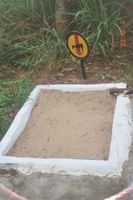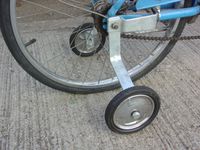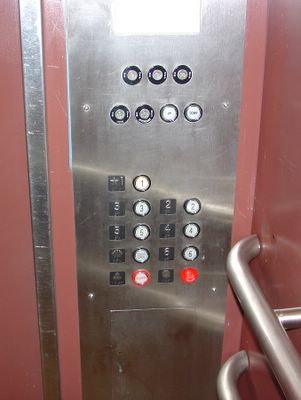Lawyer and journalist Peter Scheer says newspapers and wire services should agree to embargo their news content from the Internet for a brief period -- maybe, 24 hours -- after it's made available to paying customers. "A temporary embargo, by depriving the Internet of free, trustworthy news in real-time, would, I believe, quickly establish the true value of that information," he says. "Imagine the major web portals -- Yahoo, Google, AOL and MSN -- with nothing to offer in the category of news except out of date articles from 'mainstream' media and blogosphere musings on yesterday's news.Well, the core suggestion is what it is. But the fact of the matter is that the news blackout for journalist online would make the mainstream media sites three days late in many instances.
Yesterday I talked about the rub with the BOE meeting. Today I can update what went on. I was there. It is fresh -- as in hours. "What the heck does the Election Department have to hide?"
That rub might make it into the newspaper on Tuesday. It was part of a KQV and DUQ report, as well as one TV station today.
Then the story might get onto the web site of a newspaper on WEDNESDAY, that that adice is followed.
That is a story that was breaking on this site last night, Sunday night. His wisdom say the story would sit and then appear online elsewhere two-and-a-half days later. That's silly. That's bad business advice.
The news outlets should do more to address their content's value beyond the days of it running on the web and in the paper. I have serious suggestions as to how that can occur. If anyone, either in the industry or not, wants to call me and set up an appointment, I'll be happy to explain what could be done.
Along the same lines, Pittsburgh City Paper, does just want this guy suggest. The City Paper hits the news boxes around town on WEDNESDAY's. The City Paper's web site gets updated on Thursdays -- if there wasn't too many all-nighters in the early part of the week.
Did Chris Potter give an interview for that article? He can go out on a consulting tour offering insights in how to delay the release of online news. They've been doing it for years. In terms of letters to the editor, the delay is much longer.
BTW, Albert wrote a great LTE last week that I couldn't find on the City Paper site at all. I'll need to look for it again.
 Newspapers are posted in public spaces and in parks in Chengdu, China. The reading is free. The cost of a green leaf hat -- priceless.
Newspapers are posted in public spaces and in parks in Chengdu, China. The reading is free. The cost of a green leaf hat -- priceless. Another stand for the press. What type of advertising money could be made from these displays?
Another stand for the press. What type of advertising money could be made from these displays?











































